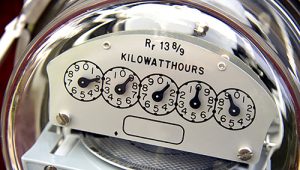Klein and Noblet developing new resource to help tribal and underserved communities in Maine implement renewable energy
 Sharon Klein and Caroline Noblet, both associate professors of economics and Mitchell Center Faculty Fellows, are working with Wabanaki and rural low-income communities to co-develop a new resource for helping them implement renewable energy and energy efficiency projects.
Sharon Klein and Caroline Noblet, both associate professors of economics and Mitchell Center Faculty Fellows, are working with Wabanaki and rural low-income communities to co-develop a new resource for helping them implement renewable energy and energy efficiency projects.
The Environmental Protection Agency awarded $1.13 million to Klein and Noblet so they can investigate the effectiveness of Local Energy Action Networks (LEANs) while creating one for Maine. They will have at least four graduate students and two undergraduates working on the project, with possible opportunities to recruit more.
LEANs are networks of local government committees that engage in peer-to-peer learning and access to technical, financial and educational assistance relating to renewable energy and energy efficiency technology. Network partners also assist in securing funding and navigating policies at the state and federal levels.
As they develop a LEAN for Maine, Klein, Noblet and their team will work with the Penobscot Nation, the Passamaquoddy Tribe at Pleasant Point and Indian Township, the Houlton Band of Maliseet Indians, the Mi’kmaq Nation, the Town of Millinocket and several other underserved communities in the state. The grant includes a subaward to the Penobscot Nation for a new Wabanaki Sustainable Energy Coordinator that will serve all five Wabanaki governments over the next four years, building the capacity needed to help them reach their goals.
“The main focus of this project is how to support communities that historically have experienced outsized energy burdens and/or have not had access to energy solutions, two key components of energy justice,” says Klein. “These communities often lack capacity for accessing the benefits of a sustainable energy transition. We are researching how statewide LEANs can provide the support these communities need to reach their own energy goals.”
Excerpted from a UMaine News article
